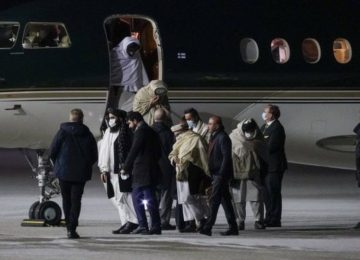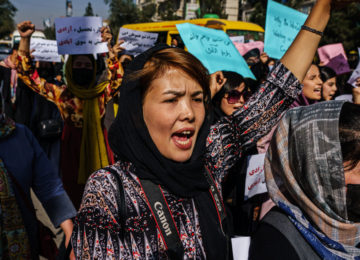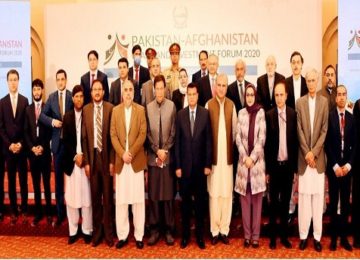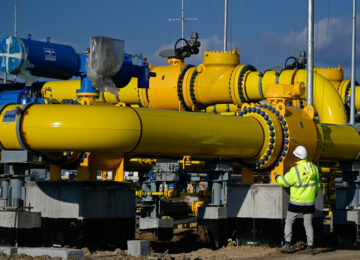Afghanistan claims to be “open for business”, and some super-rich Afghans have begun investing in their own country. But how soon can their money start replacing the billions of dollars in overseas aid the country has had so far?
The “9/11 millionaire” is how Afghan entrepreneur and businessman Fahim Hashimy is often described. He made his fortune, which he modestly calls “small-sized”, from contracts supplying Americans in the wartime years.
Before the international involvement in Afghanistan, Mr Hashimy – born and raised in Kabul – was a young English-language teacher and owned a bicycle.
With the arrival of American boots on Afghan soil he was one of the first to be recruited, in his early 20s, as an interpreter on a US military base.
At 35, he now heads an empire, the Hashimy Group, with an average turnover of more than $200m (£134m) a year, which includes Afghanistan’s second-biggest TV station, 1TV, as well as logistics and construction companies. He also launched East Horizon, a low-cost domestic airline, in 2013.
He puts his rapid career success down to luck.
“Not everyone spoke English and I was lucky I did. I also had the ambition and the vision, followed by hard work and commitment, and I knew how to write proposals,” he told me.
Once he was firmly established with the military, and accustomed to “the American and British” way of doing things, he used his strong business nose to secure supply contracts from the international forces, starting with a small $600 order for bed sheets.
That was in 2005.
Now he is proud to have a contract with the Afghan National Army, supplying boots and fuel for soldiers.
I caught up with him at his office in the heavily guarded Wazir Akbar Khan district of Kabul, which he uses for his not-for-profit work as president of the Afghan National Olympic Committee, and for his other passion – a daily body-building workout in his private gym.
“Afghanistan is a land of opportunity,” he says.
“We’re investing in the country very, very heavily. We’re 100% Afghan-owned and Afghan-operated. We’re providing jobs for the Afghans and we’re doing business in Afghanistan to bring stability.”
In 10 years, his five businesses have created 1,000 jobs each on average and returned $15m to the Afghan economy, he says.
‘Different philosophy’
Over that same period, many super-rich Afghans have moved far more capital abroad, mainly to the tax-free luxury and relative security and stability of Dubai.
Estimates vary, but they are thought to have invested more than $20bn there.
Much of it has gone into the property market, especially the exclusive artificial island resort of Palm Jumeirah, where the largest signature villa – complete with drivers and maids’ quarters – sells for more than $11m.
Since the political uncertainty of 2014 inside Afghanistan, the influx of Afghan money has continued.
According to one real estate agent, “a lot of high-ranking generals and politicians, and wealthy oil sector individuals, are still buying very expensive homes”.
One such businessman, who lives on the Palm, told us nearly a quarter of properties on this exclusive strip of Dubai beach are owned by Afghan warlords.
Despite having two family homes in Dubai as well as four in Kabul, Mr Hashimy has a different philosophy.
“We’re probably one of the very few companies that have invested everything back in the country. We’re very committed to that, and we’re very proud of that.
“There may be Afghans who have taken their money out of the country, which I do not advise and have always advised against.”
Investment in Afghanistan since 2003
- $50bn (£33.4bn) in overseas aid
- $11bn invested by 17 Afghan companies
- Sectors investing include: construction, oil, services, airline, media, drinks and beverage
Source: Afghan Investment Support Agency (AISA)
Mr Hashimy lives with his wife and three children in the Afghan capital, where insecurity is a fact of life for him and the millions living on less than a dollar a day.
A few weeks ago, both his sons switched schools after a security incident forced the international school they were attending to shut down.
Some of Mr Hashimy’s family live in Dubai, for the security and better education opportunities that attract so many super-rich Afghans.
Except for one brother who deputises for him in Kabul, his five other siblings are studying medicine there.
The office in Kabul where we met him is not far from the large, richly decorated home where he says he conducts his business meetings.
He is now a prominent national Afghan figure with powerful connections he denies having before.
“The political connections came after I became rich. And I did not get help from any politicians or any relationships with politicians.
“It was just the customer that I worked with, and down to our own commitment and a professional team.”
The latest figures the BBC has obtained from Afghanistan’s Investment Support Agency (AISA) suggest investments like Mr Hashimy’s seem to be making a difference to the Afghan economy.
In 2013, its GDP was $20.3bn – 10 times what it was in 2001. But that is still only roughly as big as Estonia’s, one of the smallest countries in the EU.
Afghanistan has also been getting almost $50bn in overseas aid – much more than any other country in the world – for much of the past 13 years since the overthrow of the Taliban.
‘Get rich quick?’
Is it easier to get rich in Afghanistan compared with elsewhere?
Fahim Hashimy sums up the Afghan dilemma.
“It’s easy because there’s no competition. But it’s harder because it’s very risky.
“If you owned a business in the UK, you wouldn’t want to invest in Afghanistan because of the high risk.
“On the other hand, when we risk our capital here, we don’t have to compete with those giants in the UK.”
You can watch Sana Safi’s report on Wednesday 25 March 2015 on BBC World News throughout the day.
This article originally appeared in BBC News on March 25, 2017. Original link.
Disclaimer: Views expressed on this blog are not necessarily endorsed or supported by the Center for Research and Security Studies, Islamabad.








